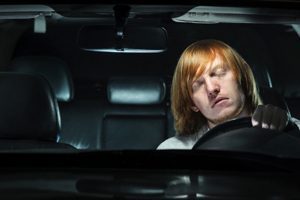
Drowsy Drivers Put Themselves And Other Motorists At Risk. People asleep at the wheel are putting themselves and other motorists at risk of serious injuries or death, according to a new study. It’s widely accepted that falling asleep while driving an automobile is a dangerous combination but just how dangerous and just how many people have […]

Drowsy Drivers Put Themselves And Other Motorists At Risk. People asleep at the wheel are putting themselves and other motorists at risk of serious injuries or death, according to a new study.
It’s widely accepted that falling asleep while driving an automobile is a dangerous combination but just how dangerous and just how many people have admitted to falling asleep behind the wheel is cause for alarm.
According to a New York Times blog post, some people are more likely to fall asleep while driving than others and it is more based on their behaviors rather than any demographic. Those who sleep less than six hours a day or who snore while they sleep are more likely to get drowsy and possibly fall asleep behind the wheel. Men, researchers at the Centers for Disease Control and Prevention, are more likely to fall asleep behind the wheel than women.
Younger drivers were more likely to fall asleep than older drivers, too. Just 1.7 percent of people over the age of 65 told researchers that they have fallen asleep at the wheel while 5 percent of people between 18 and 44 have dozed off while driving.
The study found data from 2009 and determined that as many as 730 fatalities on American roads were linked to a sleeping driver. Being asleep at the wheel may have caused more than 30,000 traffic accidents that resulted in varying degrees of injuries in that year, alone, the study found.
Injuries and death are more likely in car accidents that involve a sleeping driver because they’re unlikely to apply their brakes and often veer off the roadway at higher rates of speed than motorists who are awake through their accidents and may try to avoid more serious injuries.
People suffering from sleep apena were singled out as those who are most likely to be tired during the day and prone to drifting off to sleep behind the wheel of their automobiles. Sleep apnea causes disrupted sleep patterns and leads to excessive drowsiness during the daytime.
Being awake for a full day without sleep is the equivalent to a Blood Alcohol Content of 0.1 percent, higher than all states’ maximum allowed limit to determine drunk driving, the Times report added.
About 4 percent of people contacted for the CDC’s study admitted to falling asleep behind the wheel at some point in their lives but not recently. Researchers believe the actual figure of sleeping motorists may be much higher either because people are hesitant to admit these things and because people are not likely to remember if they’ve fallen asleep while driving.
Even just a few seconds asleep could lead to serious injuries or death as a fast-moving automobile could move hundreds of feet in just a short amount of time.
The personal injury attorneys at Parker Waichman LLP offer free, no-obligation case evaluations. For more information, fill out our online contact form or call 1-800-YOURLAWYER (1-800-968-7529).


